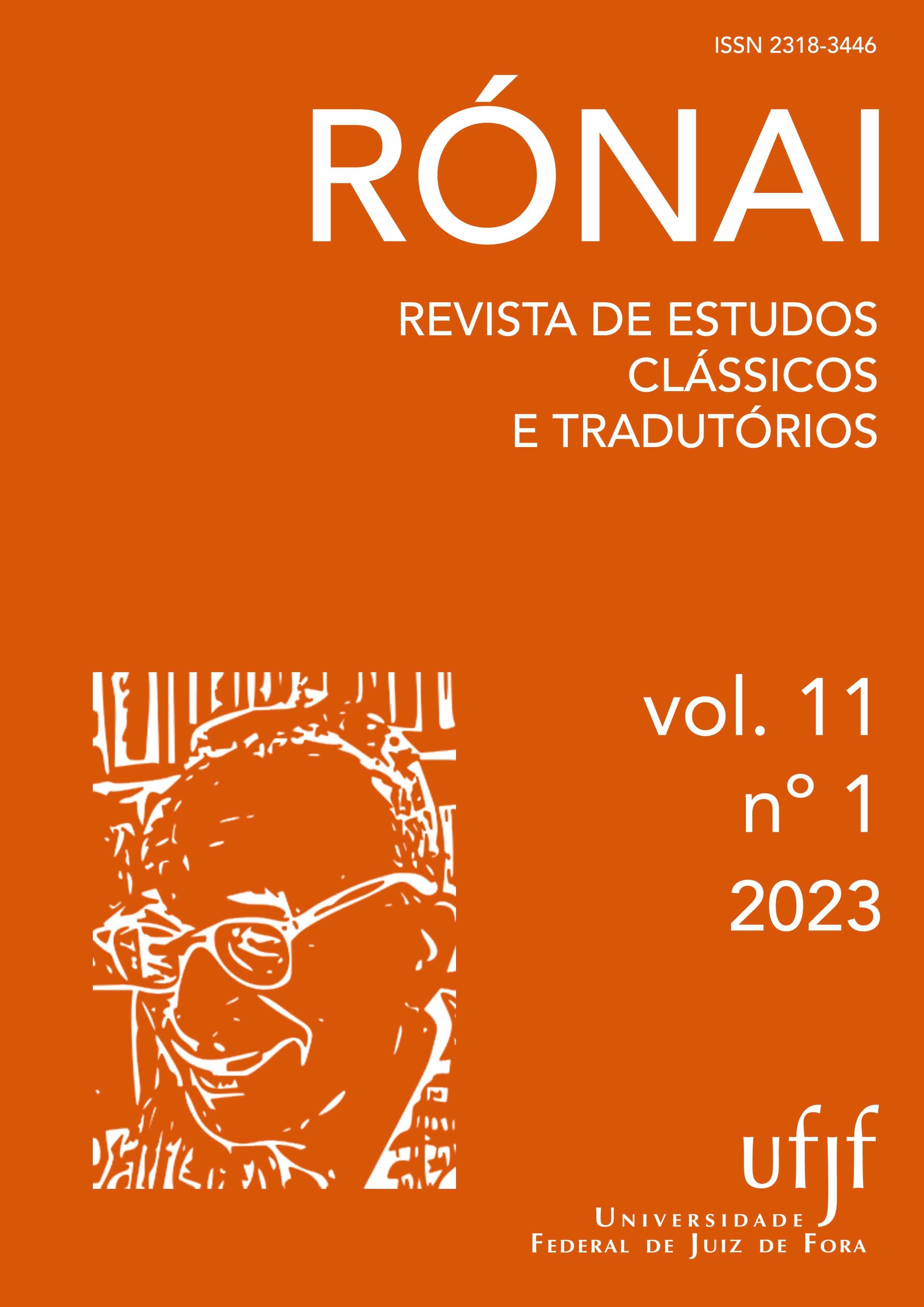Cicero’s Pro Marcello
DOI:
https://doi.org/10.34019/2318-3446.2023.v11.39811Keywords:
Cicero, Caesar, rhetoric, epideictic, republicAbstract
This article is a translation of Cicero’s speech Pro Marcello. The text is a remarkable example of the epideictic genre, although it also contains a deliberative intent, because the praise of Caesar’s virtues is used by the speaker as a persuasive strategy to advise him to preserve the policy of clemency, healing the wounds of civil war and restoring the Roman Republic.
Downloads
References
BARILLI, Renato. La Retorica. Storia e teoria. L’arte della persuasione da Aristotele ai giorni nostri. Bologna: Fausto Lupetti, 2014.
BRAUND, Susanna Morton. Praise and Protreptic in Early Imperial Panegyric: Cicero, Seneca, Pliny. In: REES, Roger (org.). Latin Panegyric. New York: Oxford University Press, 2012. p. 85-108.
CARRILHO, Manuel Maria. Les racines de la Rhétorique: l’Antiquité grecque et romaine. In: MEYER, Michel (org.). Histoire de la Rhétorique. Des Grecs à nos jours. Paris: Librairie Générale Française, 1999. p. 17-82.
CICERONIS, M. TVLLI. Orationes. Pro Milone. Pro Marcello. Pro Ligario. Pro Rege Deiotaro. Philippicae I-XIV. Recognovit Brevique Adnotatione Critica Instrvxit Albertvs Cvrtis Clark. 2ª ed. 12ª impr. Oxford: Oxford University Press, 1978.
CRAIG, Christopher P. Cicero as Orator. In: DOMINIK, William; HALL, Jon (org.). A Companion to Roman Rhetoric. Oxford: Blackwell, 2007. p. 264-384.
GOTOFF, Harold C. Cicero’s Caesarian Orations. In: MAY, James M. (org.). Brill’s Companion to Cicero: Oratory and Rhetoric. Leiden, Boston, Köln: Brill, 2002. p. 219-271.
NARDUCCI, Emanuele. Cicerone. La parola e la politica. Roma-Bari: Laterza, 2010.
PERNOT, Laurent. La rhétorique de l’éloge dans le monde gréco-romain. Tome I: Histoire et technique. Paris: Institut d’Études Augustiniennes, 1993.
Downloads
Published
How to Cite
Issue
Section
License
Copyright (c) 2023 Bruno Amaro Lacerda, Leni Ribeiro Leite

This work is licensed under a Creative Commons Attribution 4.0 International License.
Copyright
The authors of the published contributions agree with the following items:
1. The authors keep the copyright and convey to the journal the right of first publication, the work being licensed under a Creative Commons Attribution License 4.0 International.
2. The authors are allowed and stimulated to publicize and distribute their work online after the publication in the journal, recognizing first publication in this journal.
3. The authors of the approved works authorize the journal to distribute their content, after publication, for reproduction in content indexes, virtual libraries and similars.
For more information about Creative Commons Attribution License 4.0 International, please, go to: https://creativecommons.org/licenses/by/4.0/deed.en
Editorial exemption
The authors of the published contributions are entirely and exclusively responsible for their contents. Its content does not represent an official position of Rónai - Revista de Estudos Clássicos e Tradutórios neither of Faculdade de Letras da Universidade Federal de Juiz de Fora or their partner institutions.



